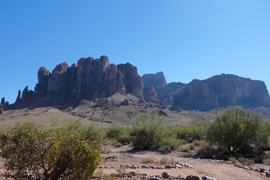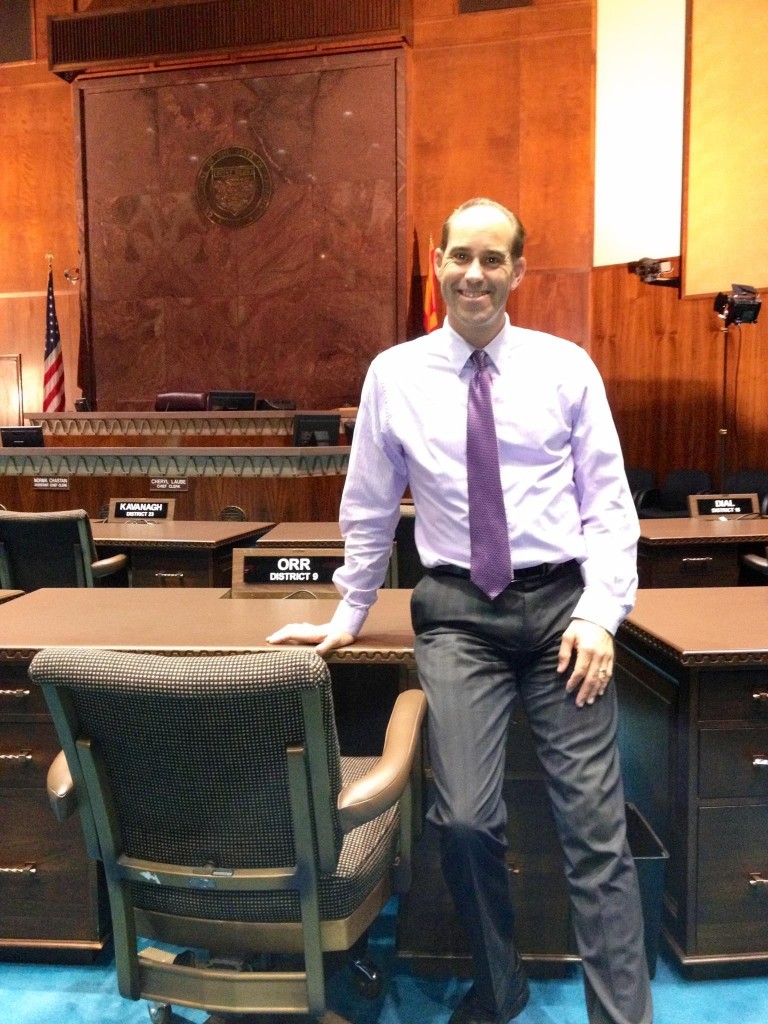[Source: Cortney Bennett, Cronkite News Service]– After years of delivering deep cuts, lawmakers this session are discussing ways to give Arizona State Parks some more money and bring back a lottery-funded grant program the agency administered.
Sandy Bahr, director of the Sierra Club’s Grand Canyon Chapter, said there seems to be a core group of representatives who are concerned about funding state parks properly. “It is a pleasure to come to the Legislature this year and see several bills that are supporting state parks instead of the opposite,” Bahr told a House committee recently.
HB 2621, introduced by Rep. Juan Carlos Escamilla, D-San Luis, would establish a voluntary fee that owners could pay when registering vehicles. The House Agriculture and Water Committee unanimously approved the bill Feb. 19. “Our state parks are a lot of times our economic tool for small, rural areas,” said Escamilla, whose district includes two state parks. The fee, which under the bill would be set by the Arizona State Parks Board, would provide 85 percent of total proceeds to Arizona State Parks and 15 percent to the Arizona Department of Transportation.
Bryan Martyn, executive director of Arizona State Parks, said Escamilla’s bill would help the agency, which operates primarily on gate fees and since 2009 has received no general fund appropriation. “Make no mistake, Arizona State Parks is a business,” Martyn said. “And we have to search every day to try to figure out how to fund these state resources.”
Cristie Statler, executive director of Arizona State Parks Foundation, an advocacy group, said money generated by the fee would help parks with operations and maintenance. However, she said, it doesn’t solve the agency’s need for sustainable long-term funding. Statler noted that many of the state’s 30 parks currently rely on partnerships with nearby municipalities and nonprofit organizations. “Cities and towns cannot sustain these partnerships,” Statler said. “Their revenues have been stripped as well. What we’re doing is passing this obligation from the state to these cities and towns.”
Bahr said that in the past the Legislature has seemed to view state parks as an expendable luxury. She said the Legislature should come up with a sustainable revenue stream. “These are important assets that protect amazing cultural and biological resources as well as help to sustain many rural economies,” Bahr said.
Joseph Garcia, communication director for Arizona State University’s Morrison Institute for Public Policy, said it’s encouraging to hear discussion about finding a funding mechanism for state parks that are operating on shoestring budgets. “But if we’re really talking about improving and preserving state parks so they’re more visitor-friendly, then that needs an investment,” Garcia said. The Morrison Institute published a 2009 study that found Arizona spent less on its park system than nearly any other state when viewed as a percentage of the overall budget. “It’s sad that with all the money and energy thats been invested in state parks they’ll close or deteriorate or people won’t visit them because they don’t have modern amenities,” Garcia said.
Meanwhile, HB 2594, sponsored by Rep. Ethan Orr, R-Tucson, would among other provisions reinstate the Arizona State Parks Heritage Fund, which used Arizona Lottery proceeds to provide grants for park programs, trails, historic preservation, environmental education and related projects. Arizona State Parks used some of the money for acquisitions and improvements. Arizona State Parks and the Arizona Game and Fish Department had received up to $10 million annually before the Legislature eliminated the Heritage Fund in 2010.
The House Committee on Energy, Environment and Natural Resources endorsed the measure Feb. 18, forwarding it to the Appropriations Committee. Janice Miano, director of administration at the Arizona Heritage Alliance, said communities across the state would benefit from reinstating the Heritage Fund. “Every community in Arizona has received at least one Historical Fund grant over the last 23 years,” Miano said. “It’s certainly an economic engine for the rural communities. It brings in projects that wouldn’t normally be funded.”
Statler said that access to parks in terms of affordable entrance fees could be jeopardized if Arizona State Parks doesn’t receive adequate funding. “You can’t jack up the fees so much that the public can’t visit these parks that are state-owned assets,” Statler said.
Meanwhile, Martyn, the agency’s executive director, said he’s happy that Gov. Jan Brewer’s proposed budget included Arizona State Park’s requested operating budget of $21 million along with $2 million in Arizona Lottery proceeds for capital improvements. “The onus still is on us to demonstrate our value added to Arizona,” Martyn said. “Arizonans have to believe in state parks if we expect them to contribute.”



You must be logged in to post a comment.